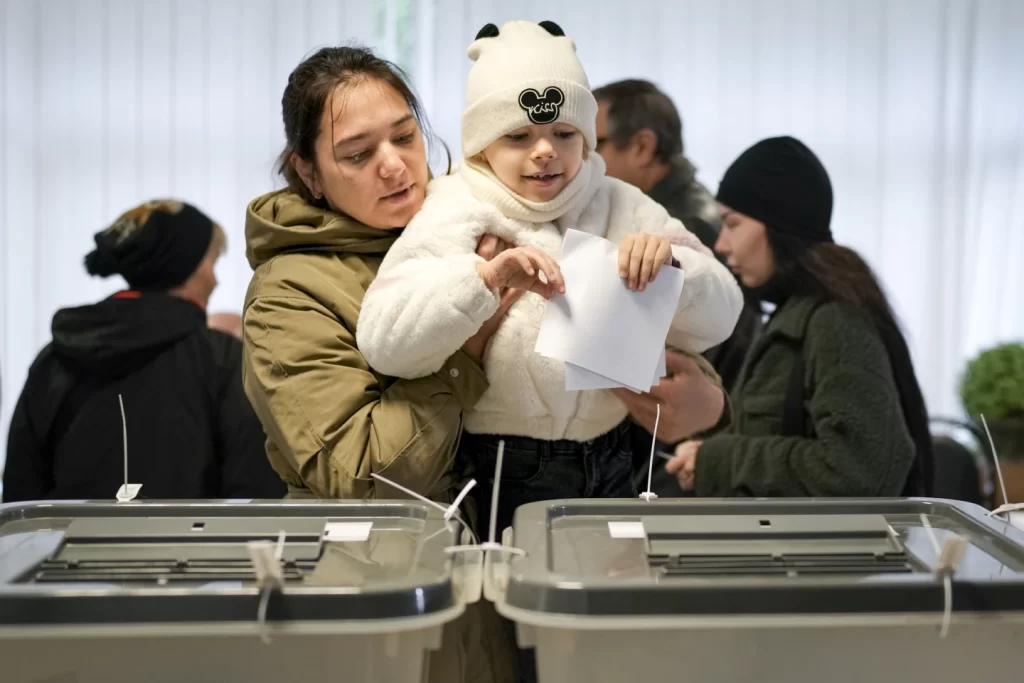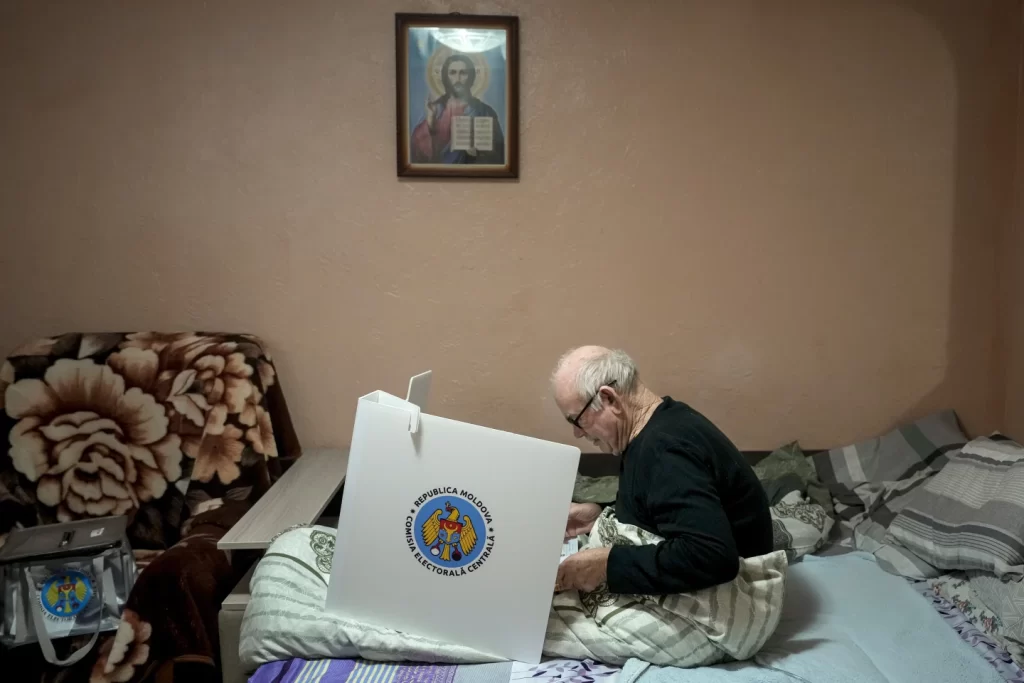Moldova has narrowly voted in favor of securing its path toward European Union membership, with final electoral data showing a razor-thin majority of 50.39% voting “Yes” against 49.61% voting “No.” The referendum, held on Sunday, saw a turnout of approximately 1.4 million voters, representing about 51% of eligible voters.

President Maia Sandu, a staunch pro-EU advocate, accused “criminal groups” of working with foreign forces to undermine the vote. She claimed these groups attempted to buy 300,000 votes, describing it as “a fraud of unprecedented scale.” Sandu asserted that these efforts were aimed at keeping Moldova “trapped in uncertainty and instability.”
The European Commission in Brussels echoed concerns about Russian interference, with spokesperson Peter Stano stating that the vote took place under “unprecedented interference and intimidation by Russia and its proxies.” The Commission underlined its continued support for Moldova’s EU accession path.
Concurrent with the referendum, a presidential election was held, with Sandu winning the first round at 42% but failing to secure an outright majority. She will face Alexandr Stoianoglo, a Russia-friendly former prosecutor general who garnered around 26% of the vote, in a runoff on November 3.

The close result of the referendum has raised questions about the strength of pro-EU sentiment within Moldova. Cristian Cantir, a Moldovan associate professor at Oakland University, suggested that polls may have overestimated pro-EU feelings inside the country, noting that the referendum might have failed without votes from the diaspora.
Moldovan authorities have reported uncovering a massive vote-buying scheme allegedly orchestrated by Ilan Shor, an exiled pro-Russia oligarch. The scheme reportedly involved paying 15 million euros to 130,000 individuals to undermine both the referendum and presidential election. Shor, who was convicted in absentia last year for fraud and money laundering, has denied these allegations.
Further complicating the political landscape, Moldovan authorities claimed to have foiled a plot involving over 100 young Moldovans who received training in Moscow on how to create civil unrest around the votes. Some reportedly attended “more advanced training in guerrilla camps” in Serbia and Bosnia.

The referendum and election results underscore Moldova’s complex geopolitical position, caught between pro-EU aspirations and Russian influence. As a former Soviet republic with a population of about 2.5 million, Moldova applied to join the EU following Russia’s invasion of Ukraine in 2022 and was granted candidate status that summer.
With parliamentary elections scheduled for next year, the narrow victory in the EU referendum and the upcoming presidential runoff highlight the ongoing challenges Moldova faces in balancing its Western aspirations with its historical ties to Russia. The international community continues to watch closely as Moldova navigates these complex political waters.
apnews



